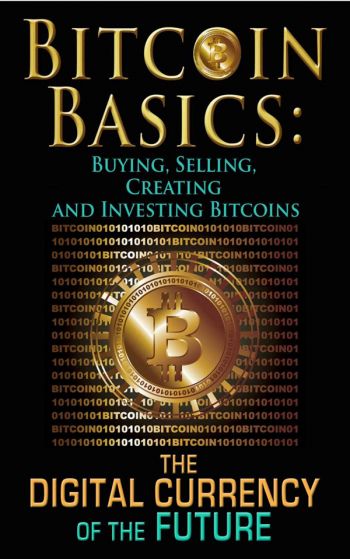Virtual bookshelf of Bitcoin ebooks
Book Review: Guides to a moving target
- |
- Written by Ed Blount
- |
- Comments: DISQUS_COMMENTS
 One of several virtual books that contributing editor Ed Blount recommends for learning about the virtual currency, Bitcoin.
One of several virtual books that contributing editor Ed Blount recommends for learning about the virtual currency, Bitcoin.
Americans nearing retirement may be excused for thinking they have probably used as many different forms of money as have ever existed. The medium of exchange for buying goods and services has become fully dematerialized since the United States broke from the Gold Standard in 1973 and adopted a currency based on the full-faith-and-credit (only) Federal Reserve Note.
Over the last four decades, we have evolved from using plastic travel cards and paper Plaid Stamps or Green Stamps as currency substitutes to transacting with smartphones and online loyalty programs. Hold an iPhone over a scanner at Starbucks and you’ll be handed a cup of coffee. Tell American Express to use your points and someone will send you a French press to make your own coffee.
These forms of exchange may seem abstract, but in most digital transactions a seller’s computer system can still identify you as the purchaser. After all, a bank account is involved in some part of the process.
True, you could transact anonymously at a low level using cash, but with digitized transactions you’re never really detached from the real world.
But virtual anonymity has now arrived in the form of virtual cryptocurrencies, the best known of which is Bitcoin.
What sets bitcoins apart
What makes bitcoins truly abstract is that no banks are involved as intermediaries. Neither are any official clearing houses or government agencies, although there are moves afoot to force disclosure and tracking of ownership in certain jurisdictions.
Bitcoins exist only as entries in a public ledger, known as block chains. Owners of bitcoins store their valuables in online wallets, which rely on cryptography to embed transaction history in each bitcoin address as a way of deterring fraud and theft.
A theorist with the code name of Satoshi Nakamoto first outlined a bitcoin plan in a 2008 paper emailed to a cryptographers group on the internet. Since then, the internet has remained the best place to acquire a virtual bookshelf describing the new virtual currency. And there is no better starting place than a virtual encyclopedia, Wikipedia.
At this writing, a variety of Wikipedia articles detail the early Pokemon trading days of Mount Gox as well as its 2014 collapse; the criminal activities and arrests of the Silk Road drug site; and the Chinese government’s warnings to its banks, along with the New York State Banking Commissioner’s early attempts to regulate the bitcoin marketplace.
Want more banking news and analysis?
Get banking news, insights and solutions delivered to your inbox each week.
Filling your bookshelf
Beyond the Wikipedia articles, several ebooks have also been published about the bitcoin phenomenon. Unfortunately, most have almost no information that’s not otherwise available for free on the internet. For example, the Kindle bookstore sells three books that make no original contribution to the literature—except for the caustically witty comments posted by disappointed readers in Amazon’s forum.
Nevertheless, two Kindle books stand out as useful references for readers with a practical interest in virtual currencies.
Michael Caughey’s 2013 Bitcoin Mining Step by Step, available for $3.99, presents a well-written description of back-office operations for the bitcoin “miners,” i.e., those entities who create the bitcoins and validate the transactions. For more systems-oriented readers, there’s Chris Clark’s Bitcoin Internals: A Technical Guide to Bitcoin, at $4.99.
Experienced practitioners, who know enough to provide screen captures, computer codes, and hyperlinks to other resources, are authors of both ebooks. Each is a mini-Wikipedia for bitcoin operations and technology, respectively.
Of course, readers will have to make their own decisions whether bitcoin is the beginning of a new age in money, or just another pyramid scheme for the uninformed masses. No author can tell them what the future will bring.
Here are three other ebooks to explore:
• Bitcoin Basics: Buying, Selling, Creating and Investing Bitcoin—The Digital Currency of the Future (bitcoin, bitcoin beginner, bitcoin mining), Benjamin Tideas. Publication date: Dec. 23, 2013, $2.99
• Bitcoin Beginner: A Step By Step Guide To Buying, Selling And Investing In Bitcoins, Sam Patterson. Publication date: Dec. 4, 2013, $4.99
Yes, there are only two books on this list of three. This is a fast-changing area, obviously, right down to the publishing aspect of it. Indeed, between the day this article was handed in, and its editing, one of the books I originally intended to tell you about became unavailable on Amazon.
Tagged under Financial Trends, Payments, Books for Bankers,














